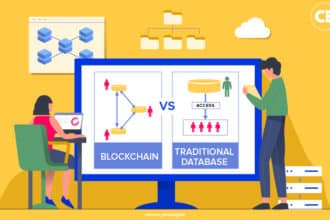The digital age has created a world where complex relationships in global trades are constantly being tested. Unfortunately, those affected by these failures struggle to maintain trust in their organizations and the blockchain community.
Blockchain is an emerging technology that offers solutions for integrity, transparency, and control over data and processes, from product sourcing to shipping goods.
That’s not all, Blockchain technology is best known for its crucial role in cryptocurrency systems, such as Bitcoin. Investors and traders across the globe have embraced decentralized blockchains because it guarantees that nobody can tamper with the record of transactions.
Thus, the blockchain network is safe for conducting trades, storing information, and recording exact and transparent order of events.
If you wish to make use of blockchain technology to generate new streams of revenue then you should consider bitcoin trading or crypto trading in general. Head on over to biticodes to get the best liquidity without worrying about the volatility risk.
Moving on, The below-mentioned portion discusses how blockchain eliminates scams and how fraudulent activities can be easily tackled by leveraging this new technology.
Possible ways to tackle Internet Scams with Blockchain:
Blockchain is poised to be the future of digital identity management and verification. It will make it easier for people to identify themselves and others. Blockchains can also work on numerous other fronts, such as improving transparency in supply chains, improving cybersecurity, increasing consumer confidence in a product, or even simply doing away with usernames and passwords altogether.
Because of this, the authenticity of records stored in the blockchain increases since information and history, once entered, cannot be tampered with.
Authentication can be difficult as some platforms are so poorly designed that they offer minimal security against fraud or hacking. Still, blockchain could change all of that by allowing consumers to verify product authenticity through an easily accessible source that is both decentralized and secure.
Moreover, supply chain stakeholders could also leverage this capability to track and monitor the movement of products throughout a supply chain and by manufacturers themselves.
In finance, blockchain helps companies make certain assets more liquid or secure. For example, blockchain could enable companies to transact directly with each other without using go-betweens like banks. As a result, it would enable faster transaction times and lower gas fees for investors without third-party interference, saving them on capital expenses.
It would also increase transparency in transactions so that users could quickly assess the value of a company’s assets for security purposes. In manufacturing, blockchain offers unprecedented transparency and efficiency in tracking products through a supply chain. Because blockchain is decentralized, all parties can access and see records from individual suppliers from any remote location.
Role of Blockchain in Protecting the ownership of Digital Content on the Internet:
Blockchain is not just about securing a company’s financial assets but also about ensuring the security of its digital assets.
Amazon has been using it for years to prevent counterfeit products from entering its distribution chain, but blockchain can go one step further. Realizing the potential of blockchain in managing its offering, it introduced Amazon Managed Blockchain (AWS). AWS makes it easy to join public networks and manage scalable private networks via open-source frameworks such as Hyperledger Fabric and Ethereum.
The concept of this new technology is that every piece of information on the internet must be stored securely and referenced through another piece of information.
Once all records have been linked together, they would be tough to breach and falsify because they would all be individually linked through an immutable ledger.
Blockchain critics quickly point out that modifying any one record would render the rest false because they are linked via the blockchain ledger. Claiming ownership of digital content on the internet is exceedingly tricky; however, blockchain could make this easier by ensuring that the content is owned by the person who claims it to be.
Recording Transactions and other Data on Blockchain:
As mentioned, blockchain has many uses in finance, manufacturing, and across supply chain management. Some of its most prominent use cases are for recording transactions or files on the internet. For example, in finance, it is used for recording stock information and transactions between companies, such as stocks and bonds.
People can use blockchain to allow companies to manage their supply chains more efficiently and securely by removing the need for paper records of transactions. Users could also use blockchain to record other types of data, such as intellectual property registrations or in-depth case studies of the entire supply chain during a process to help improve quality control.
How Smart Contracts can reduce Internet Scams?
Users can use smart contracts to provide a trustworthy marketplace where sellers and buyers can transact online. In this case, people would use smart contracts to allow sellers to set out their terms and conditions and then put up products for sale on the blockchain. When a buyer makes the payment, the smart contract will execute its actions, perhaps by delivering the product or paying out the funds in escrow.
If a seller does not deliver their end of an agreement, they are prevented from accessing the smart contract or any of its associated funds until they fulfill their obligations. In addition, payment scams are pretty common on the internet as some fishy websites claim to deliver a product or service at a cheaper rate and end up scamming the buyer; blockchain can mitigate all these possibilities with a snap.
Web3 on Blockchain:
Web3.0 is a decentralized web platform that leverages blockchain technology to allow users to communicate seamlessly without the need for an intermediary like a bank or a social media platform such as Facebook and Twitter.
Web3.0 is also fully encrypted so that all data sent between parties is secure and impenetrable because a third party can’t intercept it. This concept can be applied to everyday scenarios where people often give up their information or anonymity to access content or digital services online.
Also Read: Role of Blockchain Technology in Web 3.0 Evolution







